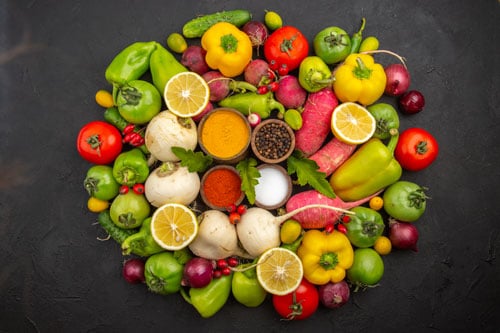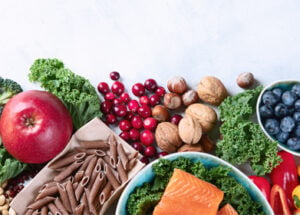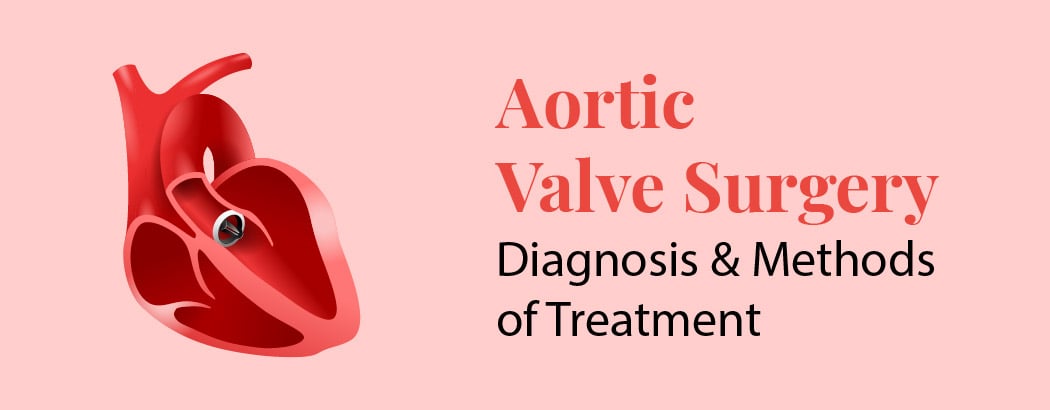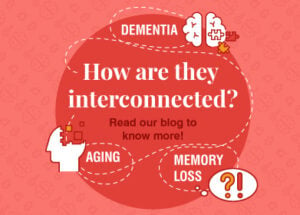Importance of a Balanced Diet: Tips to Stay Healthy
February 21, 2025

A balanced diet contains different kinds of foods in certain quantities and proportions so that the requirement for calories, proteins, minerals, vitamins, and alternative nutrients is adequate.
The significant meaning of a balanced diet can’t be underlined enough for a solid way of life or a healthy lifestyle. A healthy lifestyle can be procured by maintaining a balanced diet and keeping it in mind to meet all the essential nutrients needed by the body. An appropriate meal plan assists with accomplishing ideal body weight and diminishes the risk of chronic diseases like diabetes, cardiovascular and other types of cancer.
A balanced diet should comprise 60-70% of total calories from carbohydrates, 10-12% from proteins, and 20-25% of total calories from fat. Most of the daily calories come from the food that one consumes. For example,
- Fresh fruits and vegetables
- Whole grains
- Legumes
- Nuts
Importance of a Balanced Diet
There are five reasons which highlight the importance of a balanced diet.
- Puts a stop to diseases and infections- When you eat vitamins, minerals, and other nutrients through your daily meals, you are most likely to improve your immune system, and your healthy diet may even help prevent diseases like heart disease, diabetes, and stroke.
- Helps you control your weight- People at some point want to lose weight or gain weight. Eating a balanced diet helps you control your weight and maintain it over time, however, it is not feasible to be on a weight-loss diet forever, yet, a balanced diet is the only way to healthily control your weight in the long term.
- Improves mental health- Getting the blend of nutrients can help to ease symptoms of depression and anxiety. Looking after yourself by eating well is essential as it aids in keeping up good mental health.
- A balanced diet is of prime importance for children and adolescents- As children grow, they need to receive the right nutrients so that cells are built and maintained, and the body grows in the right place.
- Better skin and hair. A healthy, balanced diet also improves your looks. Eating well contributes to healthy skin and hair and a “glow” that makes you look younger.
Importance of Calories in a Balanced Diet
The quantity of calories in a portion of food refers to how much energy is stored in that food. Your body involves calories from nourishment for strolling, thinking, breathing, and other significant capacities.
Calories are a mark of the energy content in the food. When you consume the food, the calories are devoured when you walk, think, or relax. By and large, an individual might need around 2000 calories daily to keep up with their body weight. Generally, an individual’s calories might rely upon their sex, age, and physical activity. In addition, men need more calories than women. Individuals who are more into exercising require more calories in contrast to individuals who don’t. It’s likewise essential to recall that the source of calories is similarly significant as the number of calories.
Calorie requirements differ based on age, activity level, and gender. The table below outlines the average daily calorie requirements for various age groups.
| Age Group | Male (Calories/day) | Female (Calories/day) |
|---|---|---|
| 1-3 years | 1,000 | 950 |
| 4-6 years | 1,400 | 1,300 |
| 7-9 years | 1,600 | 1,500 |
| 10-12 years | 1,900 | 1,700 |
| 13-15 years | 2,400 | 2,100 |
| 16-18 years | 2,600 | 2,200 |
| 19-30 years | 2,400 | 2,000 |
| 31-50 years | 2,400 | 2,000 |
| 51-60 years | 2,200 | 1,800 |
| 61+ years | 2,000 | 1,600 |
Empty calories refer to foods and drinks that provide energy (calories) but little to no essential nutrients like vitamins, minerals, protein, or fiber. These foods can contribute to weight gain without offering nutritional benefits. Here’s a list of common sources of empty calories:
- Sugary Drinks (sodas, sweetened juices, energy drinks)
- Candy and Sweets (chocolates, candies, pastries, cookies)
- Fast Food (fried foods, burgers, pizza, fries)
- Alcoholic Beverages (beer, wine, cocktails, spirits)
- Ice Cream and Other Desserts (cakes, pies, doughnuts)
- Packaged Snacks (chips, crackers, and snack bars with high sugar or fat content)
- Sweetened Breakfast Cereals (those with high sugar and low nutritional value)
- Processed Foods (high in refined sugars and fats, like instant noodles and sugary snack cakes)
These foods are high in calories but offer little in terms of nutrients that support health. It’s best to limit their intake to maintain a balanced and healthy diet.
Tips to Maintain a Balanced Diet
A balanced diet comprises carbohydrates, proteins, fats, vitamins, and minerals, which are essential for maintaining a balanced diet. Each of these has a significant role and helps a person feel better.
1. Carbohydrates
Foods that are high in carbohydrates are essential for a healthy diet, as they provide the body with glucose. This glucose is converted into energy, which is used to power bodily functions and physical activity. Choose wisely from the best carbohydrate sources, such as sweet potatoes, oats, quinoa, brown rice, lentils, bananas, and chickpeas.

2. Protein
Proteins are large, complex molecules that play many critical roles in the body. They do most of the work in cells and are required to structure, function, and regulate the body’s tissues and organs. It is also essential for growth and development during the various stages of life. About 25% of daily calories should come from a protein found in pulses like- moong dal and urad dhal, and legumes like kidney beans (rajma), black-eyed beans, and chickpeas (channa). Milk and milk products like -paneer, curd, and yogurt are also great protein sources. For non-vegetarians, good sources include eggs, fish, and lean meat.

3. Fats
Fats contribute to about 15% of daily caloric needs and are a major energy source. They are also vital for storing and providing vitamins and synthesizing hormones. Some of the good sources of fats for one’s daily diet can come from polyunsaturated fats such as flax seeds, sunflower seeds, etc., The non-saturated fats such as olive oil, sesame oil, etc., and saturated fats such as butter and ghee; However, remember to use these in moderation.

4. Vitamins and Minerals
Vitamins and minerals support metabolism, nerve and muscle function, bone maintenance, and cell production. Fruits, vegetables, nuts, seeds, and poultry are the major sources of vitamins A, B, and C. To get minerals like sodium, potassium, iodine, calcium, and iron, you can add fish, cereals, beans, meat, nuts and seeds to your food routine.

5. Fiber
Fiber is essential for good digestion and helps lower cholesterol levels while controlling blood sugar. To maintain a healthy diet, include fiber-rich foods such as oats, dahlia, quinoa, brown rice, beans, whole grains, nuts, and seeds. These foods support digestion and promote heart health and stable blood sugar.
6. Water
Life without water is unimaginable. Water is a major nutritional component that helps regulate body temperature, lubricate your joints, and protect your major organs and tissues. It also aids in transporting oxygen throughout your body. Make sure that you drink at least eight glasses of water every day.

Benefits of a Balanced Diet
- Opting for a balanced, adequate, and varied diet is an important step toward a happy and healthy lifestyle.
- Vitamins and minerals in the diet are vital to boost immunity and healthy development,
- A healthy diet can protect the human body against certain types of diseases, particularly non-communicable diseases, such as obesity, diabetes, cardiovascular diseases, some types of cancer, and skeletal conditions.
- Healthy diets can also contribute to adequate body weight.
- Healthy eating is a good opportunity to enrich life by experimenting with different foods from different cultures and origins and different ways to prepare food.
Steps to Stay Healthy Forever
- Include healthy proteins and milk products, pulses, and lean meats.
- Eat more vegetables and fruits.
- Aim for 7-9 hours of quality sleep each night.
- Engage in at least 30 minutes of physical activity, such as walking, jogging, or yoga, five times a week.
- Limit the intake of processed foods and cut down on extra salt and sugar.
- Be mindful of what you eat.
- Maintain oral hygiene by brushing and flossing daily.
- Fix times to have meals and stick to it.
- Eat only healthy foods when you feel hungry.
Foods to Avoid in a Balanced Diet
Some of the food groups to stay away from on a balanced diet include:
- Processed foods
- Refined grains
- Added sugar and salt
- Red and processed meat
- Alcohol
- Trans and saturated fats
7 Days of Nutrient-Rich Meals: A Complete Diet Chart
This 7-day meal plan offers a balanced combination of essential nutrients to support overall health. It includes diverse, wholesome options for every age group to maintain energy and well-being.
| Day | Breakfast | Lunch | Snack | Dinner |
|---|---|---|---|---|
| Day 1 | Poha with peanuts and veggies / Upma | Dal (lentils) with brown rice and cucumber salad / Palak (spinach) curry with roti | Buttermilk and fruit / Chia pudding with mixed berries | Grilled chicken with chapati and sautéed vegetables / Tofu stir-fry with brown rice |
| Day 2 | Vegetable upma with a boiled egg / Methi paratha with curd | Vegetable curry with roti and a side of curd / Chana masala with quinoa | Roasted chickpeas and coconut water / Sliced cucumber with lemon and pepper | Paneer tikka with mixed vegetable salad / Vegetable stew with brown rice |
| Day 3 | Oats porridge with banana and almonds / Moong dal chilla | Chapati with mixed dal and a side of greens (spinach) / Palak dal with steamed rice | Sliced apple with peanut butter / Roasted nuts | Fish curry with steamed rice and sautéed carrots / Vegetable pulao with raita |
| Day 4 | Idli with sambar and coconut chutney / Poached eggs with toast | Khichdi with plain yogurt and salad / Methi thepla with yogurt | Papad with cucumber slices / Greek yogurt with a handful of nuts | Tofu curry with quinoa and a side of sautéed beans / Vegetable khichdi with curd |
| Day 5 | Masala paratha with curd / Suji (semolina) upma | Rajma (kidney beans) with brown rice and salad / Chole with whole wheat roti | Boiled sweet potato and nuts / Fruit chaat | Palak (spinach) paneer with roti and carrots / Vegetable and dal khichdi |
| Day 6 | Dosa with coconut chutney and sambar / Moong dal pancakes | Paneer bhurji with chapati and a side of tomato salad / Baingan bharta with roti | Chana salad (chickpeas) / Sliced avocado with lime | Aloo gobi with roti and a glass of buttermilk / Quinoa and vegetable stir-fry |
| Day 7 | Moong dal chilla with mint chutney / Vegetable paratha with yogurt | Baingan bharta (eggplant) with chapati and curd / Lauki (bottle gourd) curry with rice | Fruit chaat (apple, pomegranate) / Carrot and cucumber sticks with hummus | Grilled chicken with sautéed spinach and brown rice / Paneer curry with roti |
A balanced diet supplies the human body with essential nutrients that your body needs to work effectively. If you have an unbalanced diet, the system is prone to disease, infection, fatigue, and poor performance. Children who are deprived of healthy foods may face growth and developmental issues, poor academic performance, and are highly prone to persistent infections.








